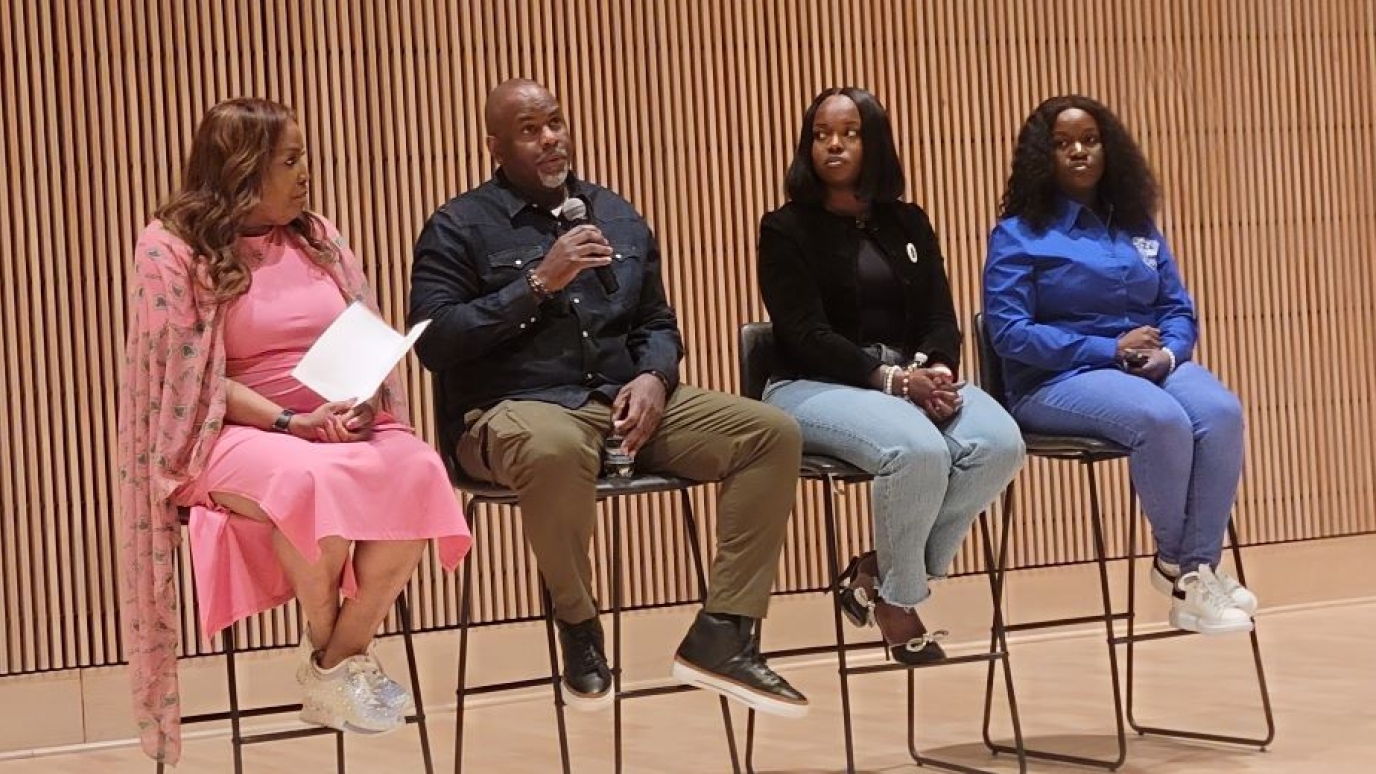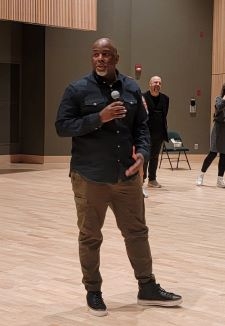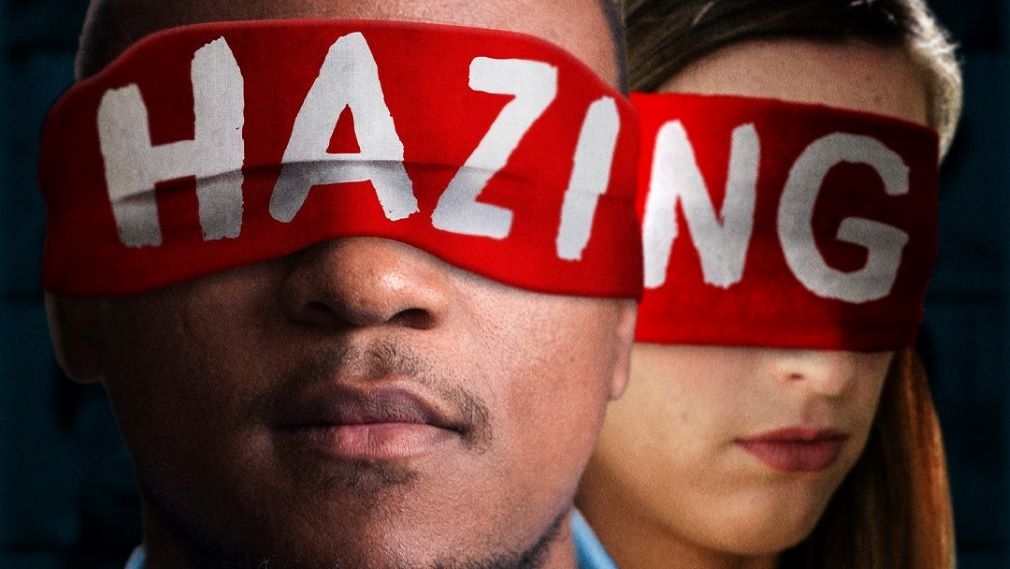
To what extremes will people go to become a part of certain groups?
Answering that question was a central theme of a recent visit to SUNY Old Westbury by award-winning filmmaker Byron Hurt, whose documentary “Hazing” delves into the realities of hazing and how those involved have been affected.
In the film, Hurt, who belongs to a fraternity himself, talks to members of fraternities and sororities, sports teams, marching bands, the military, and other groups that practice hazing, and gives voice to survivors of severe initiation rituals and the families of those who lost their lives.
“Over time, we evolve, and we shift as human beings,” said Hurt after the airing of the film at Old Westbury. “The more we learn, the more we grow, the more we change. When it comes to hazing, we have to embrace the idea that things can no longer be the way they used to be.”
Drawing on a range of voices, including family members of young people who lost their lives to hazing, the film provides a nuanced and empathetic portrait of a culture that provides a sense of belonging even as it too often leads to violence, sexual degradation, binge drinking, institutional coverups, and debased notions of manhood.
“Our problem is that we trade the stories about what happened to us, that gets passed down from generation to generation and the young people coming into our organizations feel like they are not a valuable member unless they go through those things a previous generation went through,” he said. “We have to change that.”
Creating that change, he noted, starts with leadership and vision.
“If we want our organizations to sustain themselves long term, we have to have bold leadership that stands up and speaks out against hazing – which most do at the national level – but it must trickle down,” he said. “If the culture of an organization with a history of hazing does not change fundamentally, then it’s going to continue. There will be more injuries. There will be more deaths. There will be more lawsuits. No one should want that.”
After a showing of the film, Hurt took part in a question-and-answer session moderated by Assistant Professor of Media and Communications Lisa Payton. Before the screening, the documentarian held a roundtable discussion with a select group of students from the campus’ Media and Communications program.
The range of topics during the question-and-answer session included the misplaced priority given to those who have been hazed and are therefore “made” members of an organization over those considered “paper” members because they enter the organization via truncated processes that do not include hazing.
“There is a belief that if you did not go through the process in some rigorous way, then somehow you are not a valued member of that organization,” said Hurt. “There are many people who have gone through a process so that they are considered ‘made’ who don’t pay dues, who don’t attend meetings, who don’t do any community service whatsoever. Conversely, many people who have gone through a membership entry process that is not hazing are exemplary members of their organizations.”
Hurt’s appearance at SUNY Old Westbury was sponsored by The Media Innovation Center, Student Government Association, Fraternity and Sorority Life, Black Studies Center, First-Year Experience and the School of Arts and Sciences.


